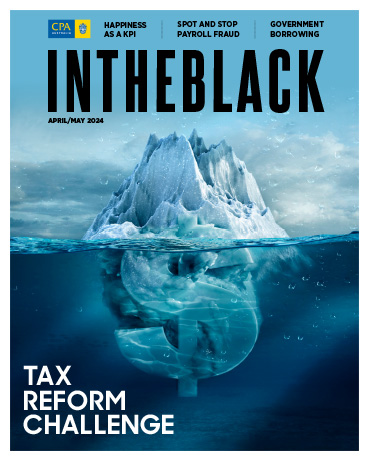At a glance
This article was current at the time of publication
Going overseas to work is a grand adventure for many young professionals. It offers the opportunity to experience a different culture, expand your work experience and enhance future career opportunities.
But the way income earned overseas is taxed is a complex area, especially if you’re working for smaller businesses that may not have much experience in how to structure salary packages for staff working abroad.
It’s worth understanding how the tax regimes in the major markets treat your income if you’re considering an overseas secondment.
Australian resident or not?
The Australian Taxation Office’s (ATO) main consideration when assessing income is whether the individual is considered to be an Australian resident for tax purposes.
“If they are, then their employment income is taxable in Australia. Their income would be classed as foreign employment income and any taxes paid in the jurisdiction where they are working would be included in their return as a foreign income tax offset,” explains Jane Wood, senior manager taxation services, RSM Bird Cameron.
“If there is a shortfall between the host country’s and the Australian tax rates, the person would need to pay the difference in Australia. For example, if they are working in the US and the tax rate is 39 per cent and their tax rate in Australia is 49 per cent, they would pay the 10 per cent difference when they lodge a tax return,” she says.
However, if an individual is not considered to be an Australian resident for tax purposes, they are only subject to local tax on Australian-sourced earnings, for example if they derive interest income in Australia.
So how does the ATO determine whether an individual is a resident for tax purposes? There are four tests, and failure to meet any one of these tests means that the ATO considers the person to be an Australian resident for tax purposes.
The first and most important is the reside test: if you live in Australia you are considered to be a resident for tax purposes.
The second is the domicile test: if your domicile is in Australia you are considered to be an Australian tax resident, unless the ATO is satisfied that you have a permanent home elsewhere.
The third test is the 183-day test: if you live in Australia for more than half the income year – whether this time is broken up or not – you are considered to be an Australian resident for tax purposes.
The final test is the superannuation test, which is set up to ensure that government staff working overseas are considered to be local tax residents, to enable them to participate in Australia’s superannuation system.
Denise Honey, international tax partner with Pitcher Partners, says that in most cases an individual needs to be planning to leave Australia indefinitely, or intend to be gone for at least two years, and to have established a home elsewhere, to be considered to be a non-resident for tax purposes.
“The issue we often see relates to the way fringe benefits tax [FBT] works,” says Honey.
“In an [Australian] employment contract you receive salary and wages and various benefits. The employer will pay FBT to the extent to which they are not exempt if you are an employee for Australian tax purposes.
"This is different to most countries, which tax the benefits in the hand of the employee. This can be a trap,” she says, advising employees and employers to pay close attention to the way salary packages are structured given this issue.
Overseas tax regimes
Each country has its own rules. For instance, if someone works for an employer in Singapore or Hong Kong, rather than simply working for an Australian company on assignment, there is no obligation for these foreign governments to withhold taxes on the employee’s income on an ongoing basis. “Employees pay tax at the end of the year. Also, a person is only taxed on the physical work days in that jurisdiction,” Wood says.
“In China, taxes are higher [than Singapore and Hong Kong] and there are very different tax rules, which can be difficult to navigate,” says Honey. “The US is also a higher tax jurisdiction but the top marginal tax rate doesn’t kick in until income reaches approximately US$400,000,” she adds.
In general, explains Wood, there may be tax conventions available to Australians under Double Tax Agreements (DTAs) if someone remains an employee of an Australian entity and works for an affiliate in another country.
Australia has DTAs with, among others, Singapore, China, the US and UK, which take into account which country has taxing rights on that income, and assists in determining an individual’s resident status for tax purposes. “There may also be ongoing employer tax obligations in Australia,” she adds.
As Mark Morris, CPA Australia’s senior tax counsel, explains: “Every country has a different set of tax rules and the rates can vary significantly between jurisdictions. For example, here in Australia, currently we have effective highest marginal tax rates of up to 49 per cent, excluding additional levies, whereas in Hong Kong the highest personal marginal tax rate is only 17 per cent.”
One of the risks with working between various countries is the potential that you may be taxed twice on your income, both at home and in the country where you are working. In many cases this is avoided, as Australia has a double tax treaty with many countries, but it also shows that you need to be aware of these rules when you are looking to live and work internationally.
"For example, Australia currently has tax treaties with the US, the UK and Singapore, but not with Hong Kong. These are the complexities that you need to be aware of,” Morris advises.
Liam Branagan, international tax and remuneration adviser at KPMG, says it can be more difficult to prove you’re a non-resident for tax purposes working in Asia-Pacific countries, where assignments tend to be for shorter periods and people go back and forth between Australia and countries in the region.
“China has a concessional tax regime for foreigners, but once you have worked there for more than five years more income is brought into the tax net. In the US, [in addition to federal tax] you may need to file a state tax return as well as a municipal [local government] tax return; so potentially you need to file three returns,” he says.
Seeking help
Given this complexity, it’s important both employers and employees seek help when staff are working overseas for any length of time.
“Some firms will provide many relocation benefits including help with housing, schooling and utilities costs. But often employees will be tax equalised, which means you end up paying the same amount of tax as if you never left Australia. In that situation, a professional accounting firm will take care of your taxes, which reduces the stress of going on assignment,” says Branagan.
“A lot of companies will pay relocation expenses and plane tickets and treat you like a local employee for tax purposes once you get there, so there’s a full spectrum of potential scenarios.”
Smaller businesses without experience in this area are advised to seek help from tax specialists who understand how to interpret the tax rules in various jurisdictions. This is important because forgetting, say, to include health insurance in a staff member’s remuneration package when relocating to the US could turn out to be an expensive problem for the employee if they were to fall ill overseas without having health insurance in place.
"In China, taxes are higher [than Singapore and Hong Kong] and there are very different tax rules, which can be difficult to navigate." Denise Honey, Pitcher Partners
"Often employees will be tax equalised, which means you end up paying the same amount of tax as if you never left Australia." Liam Branagan, KPMG
Retirement Savings and expatriates
One of the most potential downsides of working overseas is that sometimes it puts employees in a situation where they are no longer contributing to a local superannuation fund. People in this position can end up with a lower superannuation balance at the end of their working lives. Where in the world you work will determine how your super is affected.
"If you are working overseas you need to make sure you know what is happening with your superannuation contributions, both at home and in the country where you are working, as well as what restrictions there are on bringing your overseas superannuation back with you when you return," says Mark Morris, CPA Australia's senior tax counsel.
"For example, in Australia if you have a self-managed superannuation fund, you must ensure that your fund continues to satisfy the requirements of being an Australian superannuation fund, which can become an issue if you are away for more than two years."

